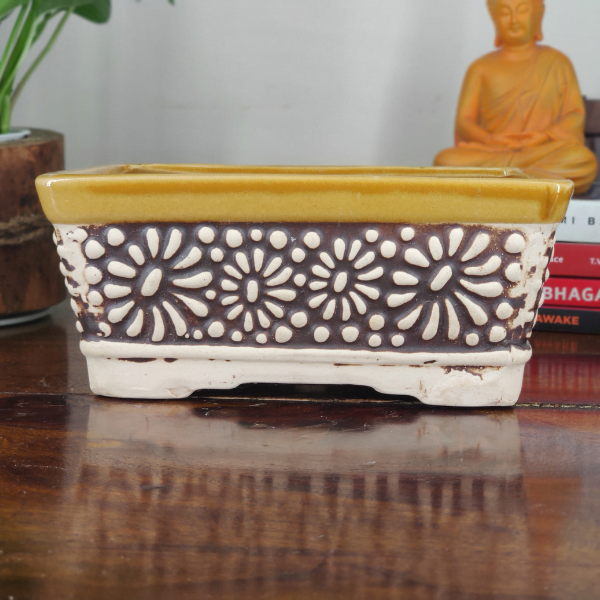1
/
of
1
Ceramic Bonsai Pots Carved 22cm
Ceramic Bonsai Pots Carved 22cm
Regular price
Rs. 699.00
Regular price
Rs. 1,000.00
Sale price
Rs. 699.00
Unit price
/
per
Free Shipping Over Rs. 500
This small bonsai planter is a true show stopper, handcrafted with unique hand techniques. This lovely planter will add a touch of elegance to any room.
\n-
\n
- Ideal for indoor and outdoor plants \n
- Long-lasting and environment-friendly pots for ease \n
- A traditional aesthetic that will light up your surroundings. \n
- Life-long companions for your outdoor bonsai trees \n
- Temperature-resistant clay pots that minimize root damage. \n
Couldn't load pickup availability
Check Estimated Delivery
Product features
Product features
Get 10% OFF On all orders above ₹499 | Use Code: SUMMER10
Share

Ceramic Bonsai Pots Carved 22cm
This small bonsai planter is a true show stopper, handcrafted with unique hand techniques. This lovely planter will add a touch of elegance to any room.
\n-
\n
- Ideal for indoor and outdoor plants \n
- Long-lasting and environment-friendly pots for ease \n
- A traditional aesthetic that will light up your surroundings. \n
- Life-long companions for your outdoor bonsai trees \n
- Temperature-resistant clay pots that minimize root damage. \n

